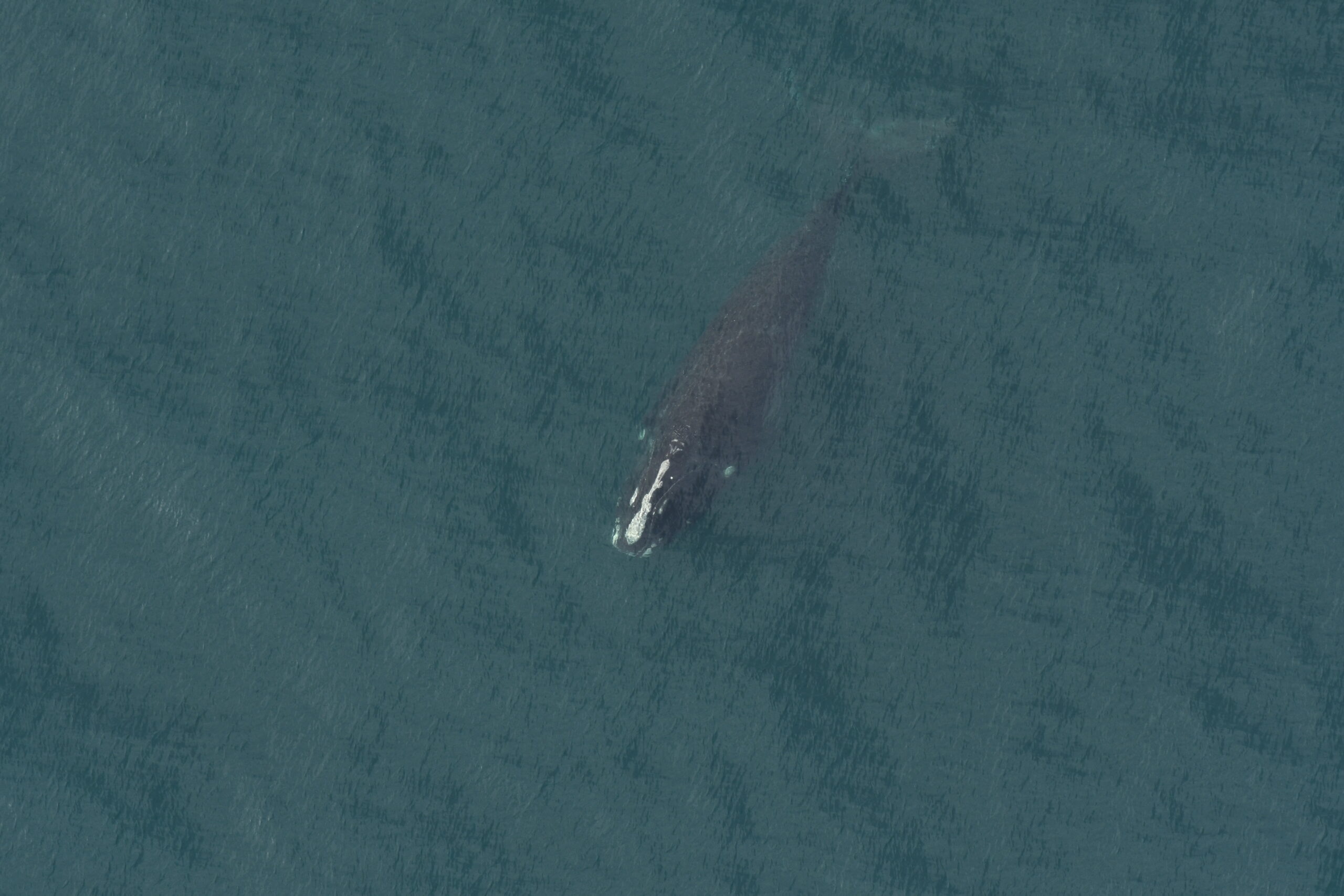
BOSTON, MASS (Dec. 9, 2024) — Scientists at the New England Aquarium are unveiling a new slate of named North Atlantic right whales, an annual tradition that helps researchers in the field identify the critically endangered animals in real time.
**PHOTOS AVAILABLE HERE – SEE CREDIT INFORMATION IN FOLDER**
Every right whale in the North Atlantic Right Whale Catalog has a number assigned to them, and many of these whales have also been given names that help scientists more easily recognize the whales when they see them during field work. Even for a small population of around 370 individuals, remembering numbers for each whale can be daunting, so names can make it easier. This year, 20 right whales were assigned names.
The naming process involves submissions from North Atlantic Right Whale Consortium members and various research organizations, who then participate in a ranked choice voting system. The names are intended to relate to easily recognizable features or facts about the individual whale.
“Researchers who identify right whales in the field benefit from whales having recognizable names,” said Amy Warren, an assistant research scientist in the Anderson Cabot Center for Ocean Life at the New England Aquarium, who leads the naming process. “Throughout the naming process, the scientists’ stories from past sightings tend to come out. It’s a fun bonus for all of us to feel connected to the research community members who spend time on and over the water.”
The 2024 group of named whales includes “Polaris” (Catalog #3350), a 21-year-old male who is named for his large white scar on the left side of his head that is bright like the north star. Another male right whale, “Wall-E” (Catalog #5104), has a callosity (patches of raised tissue) that looks just like the lovable Pixar character WALL-E. And the little white scar behind the right postblow is his friend in the movie, EVE. The Aquarium collaborates with Whale and Dolphin Conservation (WDC) on playful yearbook-style bios for each of the newly named whales. Wall-E’s bio indicates his favorite song is “EVE” from the Disney movie’s soundtrack. (The full list is available on neaq.org.)
“During WDC’s education program, which features a life-sized inflatable North Atlantic right whale named Delilah, students draw callosities and create names for their whale,” said Caroline Mowdy, Communications Specialist at Whale and Dolphin Conservation – North America. “Now we have another group of named right whales to inspire kids in the classroom about conservation.”
Other names from this year’s right whale crew include a 30-year male, “Hammer” (Catalog #2406), who is named for part of his callosity that looks like a hammer with a long handle. “Swallowtail” (Catalog #3725) received a family name since her mom’s name is Butterfly and her broken lip callosity resembles a swallowtail butterfly’s tail. Another family name is “Frisbee” (Catalog #3980), Boomerang’s daughter, who was named for a small scar on her head that looks like a frisbee.
Using data curated by the New England Aquarium, the 2023 right whale population update by the National Oceanic and Atmospheric Administration (NOAA) that was released in October 2024 showed a slight increase in the number of right whales at 372. While the species remains critically endangered, the increase proves that the species can recover if we let them. The biggest threats to the survival of the species continue to be vessel strikes, entanglement in fishing gear, and climate change, with mothers and calves being at the highest risk.
The New England Aquarium has been studying North Atlantic right whales, one of the world’s most endangered large whale species, for more than 40 years. Scientists in the Aquarium’s Anderson Cabot Center are pioneering hormone and stress research, assessing and tracking anthropogenic injuries, and conducting aerial surveys to monitor the animals’ habitat use, which provide crucial information to better protect the species.
For more than 30 years, Whale and Dolphin Conservation has worked to reduce vessel strikes and accidental entanglements in fishing gear through a dedicated program to recover North Atlantic right whales. As part of a collaborative effort, WDC is supporting efforts to enable fishermen to test on-demand fishing gear, which significantly reduces the chances of whales becoming entangled. Through our policy and boater outreach programs, WDC has helped to create seasonal slow zones to keep boaters and whales safe and, using our life-sized inflatable North Atlantic right whale, WDC educates more than 10,000 individuals each year on the plight of this endangered species.
MEDIA CONTACT:
Pam Bechtold Snyder—617-686-5068; psnyder@neaq.org
Caroline Mowdy – caroline.mowdy@whales.org
